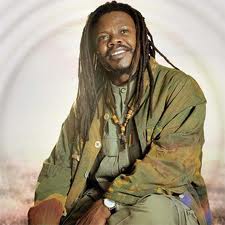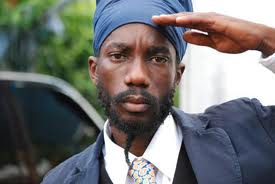By Jesse Vanpoucke—

Collie Buddz—–
Born in New Orleans and hailing from Bermuda, Colin Harper, a.k.a. Collie Buddz, has no shortage of culture. From taking piano lessons, to the 2007 smash hit “Come Around” and having that song remixed by the likes of Busta Rhymes and the G-Unit, Harper has enjoyed growth and continued success in the music industry. Now independent, he shows no signs of slowing or stopping.
Harper is not the typical Bob Marley reggae artist—far from it. His music is more in the school of Jamaican dancehall, yet with heavy hip-hop, electronic and pop influences. Harper can sing high and clear or he can get more rootsy with a heavy attack of syllables and full-on intricate rhymes. Overall, however, his music carries the same positive, put-a-smile-on-your-face kind of feeling that comes to mind with reggae.
Moving to Canada and then Bermuda by the age of 5 had a profound effect on Harper, and being exposed to varying environments at a very young age made him open to different cultures, ideas and music in Bermuda. The island is home to the same amount of people that live in Flagstaff, around 65,000 according to the U.S. Census Bureau and World Bank, but there reggae is king.
“That was a big part of growing up there in Bermuda: reggae music. There’s only so much to do growing up, and if it weren’t for music …” Harper says.
His mother played a role too. She was the one who originally started calling him “Collie” (naturally, the Buddz part came later, in his teens, transforming his name into a reference to high-quality marijuana) and also enrolling him in piano lessons.
“Mumsy hooked me up with that stuff. Thank God for that, because it really showed me a different side of things like the theory behind music and the structure of song,” Harper says.
Continuing the theme of keeping it in the family, Harper explains how he started to sing at a young age because of his brother, Smokey.
“He was deep into the reggae music and that’s basically where I learned from. He started singing lyrics when I was about 12 years old. I looked up to him. I wanted to be just like him. So I tried to kind of follow in his footsteps,” Harper says.
This led to Harper, his brother and the rest of the neighborhood kids to transform their yard into an informal musical stage, where everyone would crowd around an old boom box and take turns singing and rapping.
“We didn’t have a microphone but we used to plug in old airplane headphones … as a microphone. We would record it on the tape deck and then play it back and have a laugh,” Harper says.
Next thing they knew they were writing their own lyrics, all mixed with some healthy competition.
“I would be like ‘Ah, they got me today… I’m going to write some lyrics tonight and tomorrow I’m going to burn everybody.’ It was a fun thing,” Harper says with a laugh about their battles.
But really it was the love of music that fueled the performing. “We didn’t go anywhere without carrying a little box with us—you know, a little tape deck,” Harper says.
With such a fixation on music, it’s no surprise that Harper decided to get an education in the field.

After high school, Harper moved to Florida to attend Full Sail University (a for-profit institution focusing on media production skills) and graduated in 2001 with an associate’s degree in recording arts. There he learned recording and mixing at a professional level, and his music greatly benefitted.
“That’s when I really took it to the next level; I produced my first ‘riddim’ in 2002 and the rest is history,” Harper says.
In creating his own music, Harper tends to pull inspiration from the music he listened to in Bermuda, specifically reggae sound systems and “sound clashes, such as Killamanjaro, which were groups of DJs playing together live and sometimes clashing for supremacy. Dancehall, a subgenre of reggae, is also deeply rooted in Harper’s musical ideas, as he cites Luciano, Sizzla, Anthony B, Bounty Killer and Beenie Man all as inspiration. Now he tries to stay more current in order to keep up with the scene.

“I listen to everything. [In Bermuda] there was no Internet, no YouTube,” Harper says. “I was only given what the music stores in Bermuda had. To go get a session tape every week, that was my thing growing up. Now that I’ve been exposed to so many different types of music and I’ve been all over the world … I listen to top 40, what’s poppin’, what gets the most views … because it’s more like I want to see what’s going on, what people like. I enjoy listening to music, as long as it’s good music.”
It’s this desire that allowed Harper to be such a commercial success when he released his first album in 2007 titled Collie Buddz. The hit song on that album—what Harper is generally known for—was “Come Around,” a track that Harper says he knew was going to be a big deal.
At the time, he was signed to Sony Music, a major label, so he received loads of CDs full of beats from various producers in order to write his album. Once he heard the beat that would eventually become “Come Around,” he immediately started recording the vocals, right then and there.
“After we’d recorded the song and said that it was good, you still don’t really know, because nobody else has heard it, but you’re feeling the vibe, so it builds up anticipation for wanting to seeing everyone receives it. I sent it back to Sony [and] they leaked it the next day,” Harper says.
It was obvious Sony agreed the song had potential, and it went on to become a huge hit.
Since then Harper has been a busy man, touring relentlessly and releasing countless singles on the Internet—but still, no sophomore album. This is partly due to Harper’s move to become an independent artist along with a desire to tour.
“We were touring a lot, we were touring so much that we really didn’t have time. I’m saying ‘Look, I need to record this album,’ and it’s tough to do it on the road. You can’t really do it with quality with a [portable audio recorder] and a laptop, its just not going to work,” Harper says.
Over the last year he has gained his focus and the album is coming together. “I’m working on [the album] now and it’s due out early next year. I’m just trying to keep the whole movement rolling … hopefully, hopefully early next year. Before May,” Harper says.

But for now, Harper is enjoying his tour, something that wasn’t always a guarantee. The new positivity is largely due to the switch to independent, and the new tour-managing group, Ineffable Music Group, that came along with the change.
“We’re doing our own thing. It’s been the best thing ever. Total control of everything. Now it’s like a godsend. I look forward to touring with IMG. It’s incredible. I love it. That’s one of the big parts of why I’m still around, to be honest; if it weren’t for IMG I would of said ‘Forget this, this is crazy. This is too much,’” Harper says. Lucky for fans he has found that comfortable situation that allows him to come to places like Flagstaff, a place that he might not otherwise consider.
“When you talk to a lot of artists, Flagstaff is not really a place that a lot of [them] perform,” Harper says. But he is excited. “One of the papers in Bermuda was asking where I’m going on this tour and when I said Flagstaff they thought it was unusual and asked if they even listen to reggae music there, and I told them they love it,” Harper says with a laugh.
Harper has toured the world, been on MTV, shot videos in Jamaica and inspired as many musicians that he’s been inspired by. He even started his own radio station in Bermuda that plays any type of music, and is not constricted by corporate ownership or major record labels. Harper, Collie Buddz, just likes fitting into the positive vibes of his beloved music.
Additional photos for this story:

Collie Buddz brings down the house at Lollapalooza in 2011. Courtesy photo

Collie Buddz performs in Danbury, Conn., during the Legalize It Tour in 2010. Courtesy photo

Photo courtesy of Universatile Music



You must log in to post a comment.